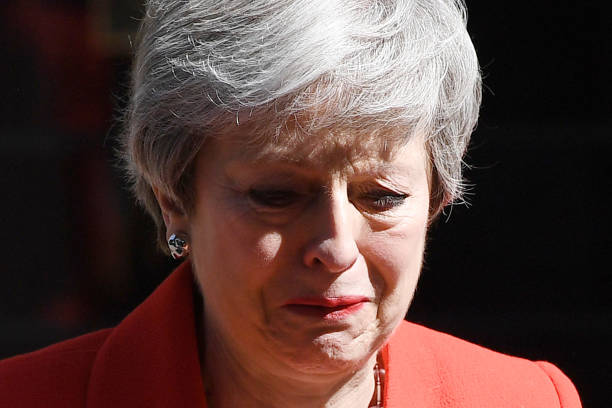A prominent coalition of international leaders and human rights advocates has sounded the alarm, urging swift and united global action to end modern slavery within the next five years. The Global Commission on Modern Slavery and Human Trafficking, led by former UK Prime Minister Theresa May, presented a comprehensive 150-page report this week to United Nations Secretary-General António Guterres in New York.
Titled “No Country is Immune,” the report highlights the widespread and persistent nature of modern slavery, estimating that around 50 million people—men, women, and children—are currently trapped in forced labor, forced marriage, or other forms of exploitation. It condemns the global community’s failure to act decisively, calling the crisis one of the most severe human rights challenges of our time.
“This is a moral crisis,” said May, emphasizing the urgent need for renewed political will and coordinated efforts across nations. “It is deeply troubling that in today’s world, so many lives are being destroyed through slavery, and yet it remains a neglected issue.”
The report serves as a call to action for member states of the United Nations, warning that without bold steps, the goal of ending modern slavery by 2030—an objective embedded in the UN’s Sustainable Development Goals—will not be met. It outlines a number of urgent recommendations, including the implementation of enforceable national laws, the creation of a globally agreed-upon definition of modern slavery, and stronger measures to hold corporations accountable for the presence of forced labor in their supply chains.
A key feature of the report is the introduction of a new Prevention Framework. Inspired by the 2014 Prevention of Genocide Framework developed by Adama Dieng, a former UN Special Advisor, this model aims to guide nations in identifying the root causes of modern slavery. It also provides practical strategies for prevention, early intervention, and the protection of vulnerable populations.
May noted that one of the reasons for the report’s release was a perceived decline in political engagement on the issue. “In speaking with frontline organizations and victim support networks, it became clear that momentum had slowed,” she explained. “This report is designed to reignite that urgency and help governments see this as a crisis that requires immediate, coordinated action.”
At the report launch event, modern slavery survivor Nasreen Sheikh delivered a powerful message. Having experienced exploitation firsthand, she now campaigns globally for fair labor and ethical consumption. Sheikh called on governments and consumers alike to reject systems that benefit from hidden suffering.
“Our economic choices matter,” Sheikh said. “We need to build systems rooted in transparency. Slavery is woven into so many of the products we use daily—but we can change that. By becoming more aware, asking difficult questions, and refusing to support unethical practices, we can begin to dismantle the structures that allow slavery to persist.”
The Global Commission hopes that this report will not only reignite global political will but also inspire individuals, communities, and corporations to take a stand against exploitation. With the 2030 deadline approaching, the time for action, they stress, is now.




